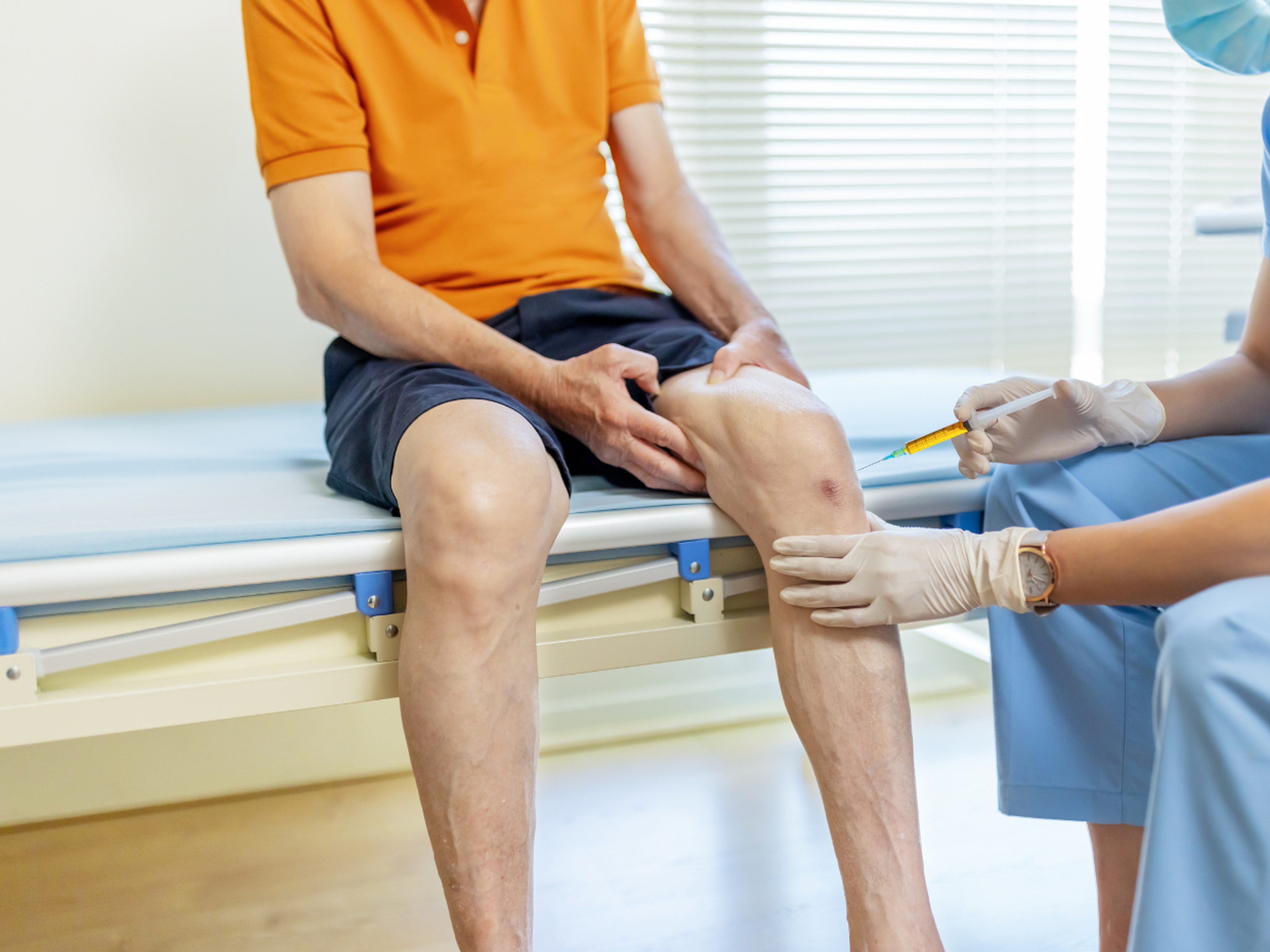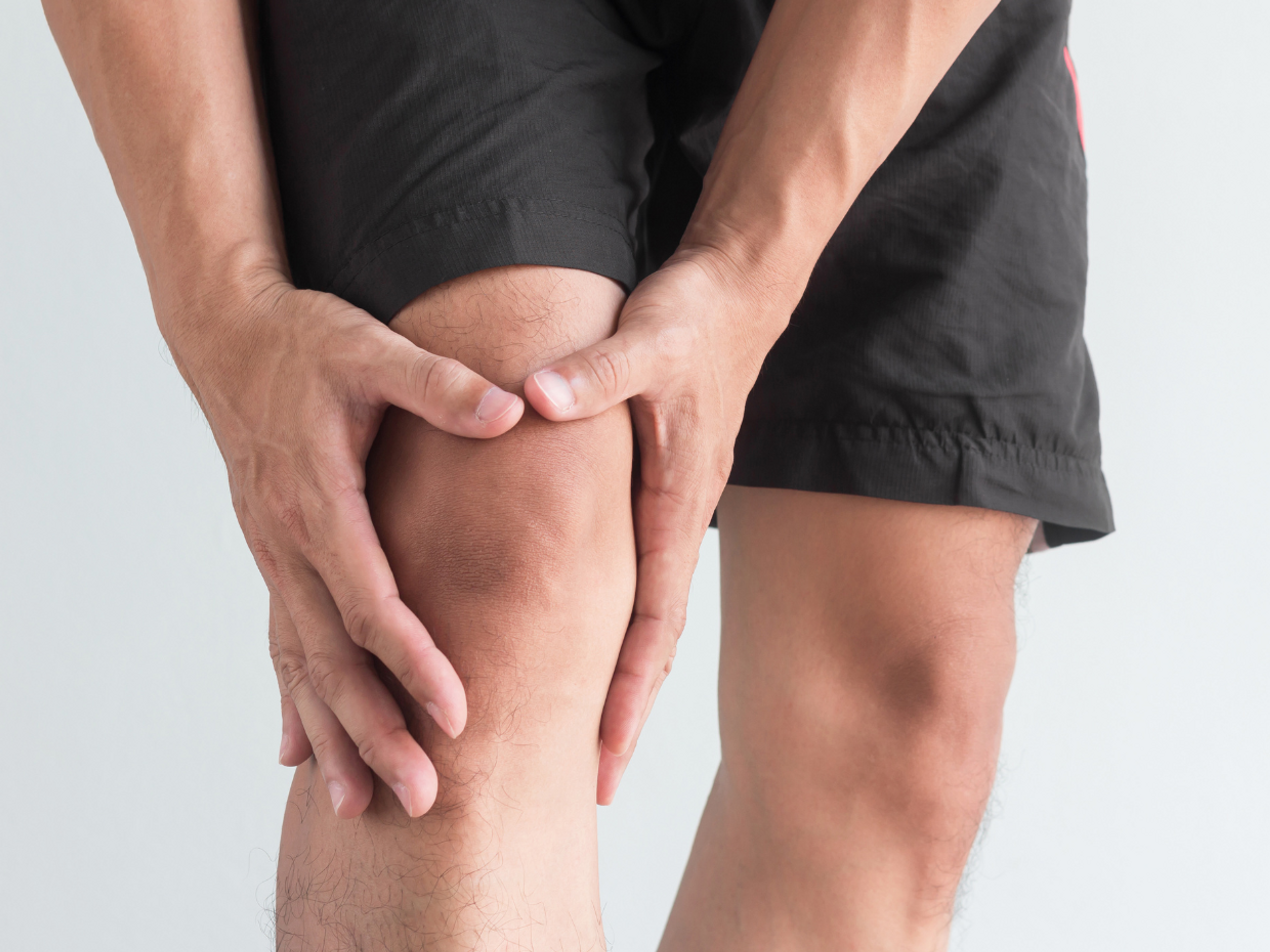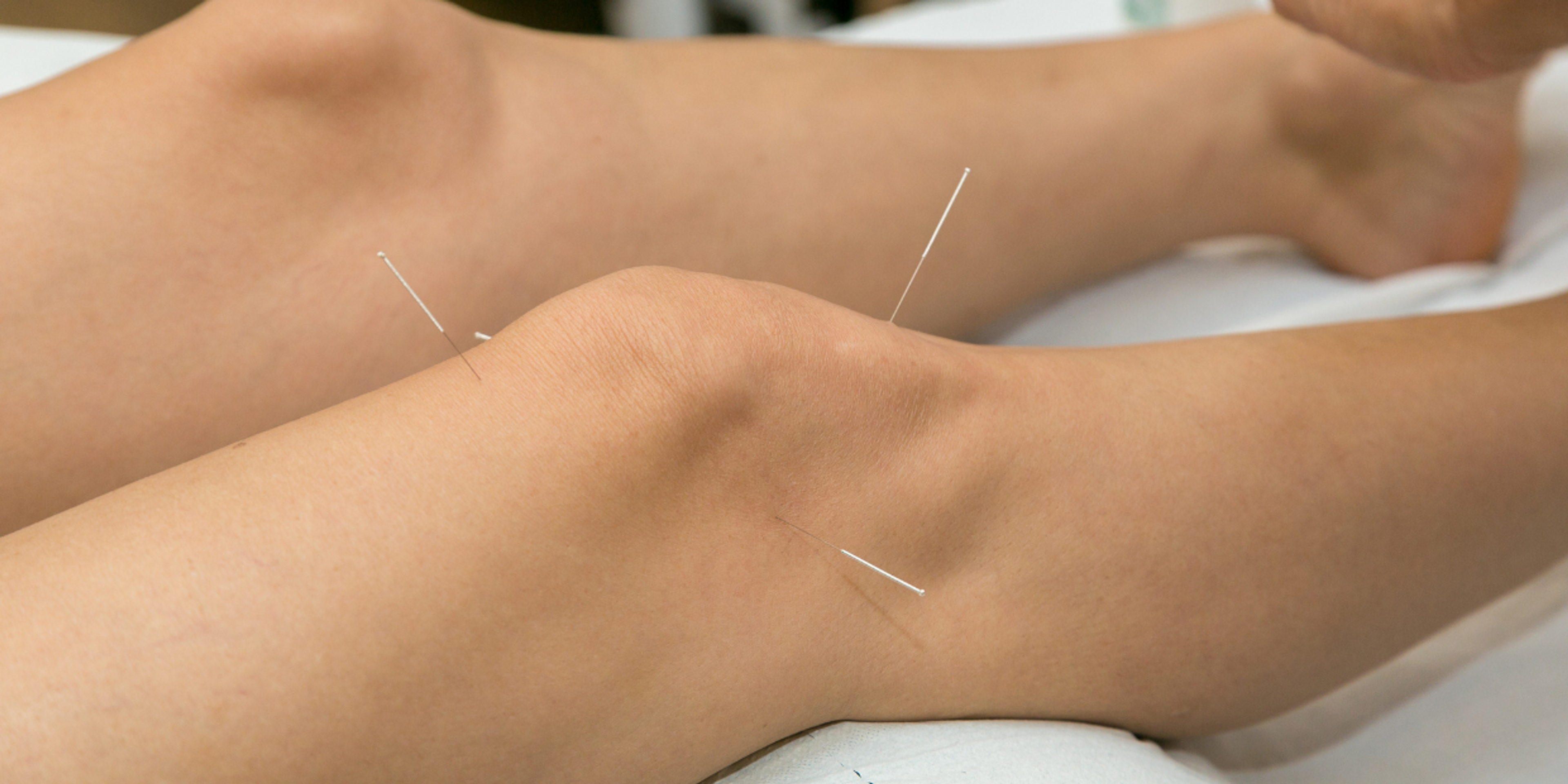Will a cortisone (steroid) injection help my meniscus tear?
What is a cortisone or steroid injection?
Your physician may recommend a cortisone injection for your meniscus injury if your knee is persistently painful and swollen because of it. However, this advice may leave you wondering what cortisone is, how it works, and if it’s any good for you.
Cortisone, also known as a steroid or corticosteroid, is a medicine that helps decrease pain, inflammation and swelling. It works by reducing blood flow and calming the immune system.
Cortisone is usually injected by a trained professional under ultrasound guidance. This way, the medication has a better chance of reaching the target area in your knee and effectively reducing your pain.
Different types
Different corticosteroid medications are used for various conditions and delivered in different ways.
- Systemic corticosteroids affect many areas of your body. They are usually taken orally (as pills) or injected into a vein or muscle (as injections).
- Local corticosteroids affect specific areas of your body. They can be injected into a joint or, for other types of health issues, applied as skin creams, eye drops, or ear drops.
Does a cortisone injection help for a meniscus tear?
Cortisone injections may help reduce pain, inflammation and swelling related to your meniscus injury. But, since inflammation plays an integral part in the healing process, suppressing it may delay your healing.
You should only use these injections when no other treatment or therapy has worked. And it should be part of your overall treatment plan, not a standalone treatment.
Cortisone injections may be helpful in many cases, especially when knee pain stops you from working or doing your rehab exercises effectively. But unfortunately, they are not always appropriate for everyone with a meniscus tear.
Pros of a cortisone injection for meniscus tears
Pros - why a cortisone injection can help
A structured strengthening and rehabilitation program is one of the best ways to treat and prevent meniscus tears. Stronger muscles, improved posture and better patterns of movement help reduce the strain on your knees and take the pressure off your meniscus.
Having less pain can make your rehab more effective and exercise more enjoyable.
Cons of a cortisone injection for a meniscus tear
Cons - Why a steroid injection might not be the right choice
Side effects with high or multiple doses
As with all medical treatments, there are some negative effects from cortisone.
After a single dose, systemic side effects are uncommon. However, with regular or high dosages of cortisone, there’s a chance you may experience more serious side effects.
Some side effects develop soon after, and others may develop over time. Since these may be different for each person, you should discuss any side effects of medical treatment with your doctor before going ahead with it.
Side effects include:
- Pain, swelling and bruising at the injection site (this usually gets better after a couple of days)
- An allergic reaction to the medication
- Skin infection at the injection site
- Skin thinning at the injection site
- Tendon weakening
- Cartilage damage
- Cortisone injections can cause temporary spikes in blood sugar and blood pressure levels. If you have diabetes or high blood pressure, your doctor should monitor you closely.
- If you have a weak immune system, you should avoid cortisone injections. They can increase your risk of infection.
How often can you get a cortisone injection?
Doctors limit the number of steroid injections to three or four per year. The number of injections appropriate for you depends on your overall health, pain level, and any other therapies you’re having.
Over time, pain relief with cortisone injections may become less effective.
How long should you wait to exercise after a cortisone injection for a torn meniscus?
After getting a cortisone shot, pain may increase in the first few days. This is called a cortisone flare. During this time, it’s very important for you to rest and restrict your everyday activities.
You may feel tempted to get back to your exercise and activity routines once your pain feels better. But, it’s best to keep your activity to a minimum for the first ten days and then return to previous activity levels gradually.
Slowly reintroduce more activities and gradually build up the intensity. This will allow your body enough time to adapt to the movement, and you will recover better.
Remember, cortisone only decreases the symptoms; it doesn’t strengthen your knee.
It’s important to ease slowly back into activity. Cortisone only decreases the symptoms, it doesn’t strengthen your knee.
How to start exercising again
Are there alternatives to cortisone injections for a meniscus tear?
Cortisone treatment may affect your long-term recovery from a meniscus tear, and it should only be considered if you have persistent pain and swelling and when other medications and therapy are not helping.
It’s important to remember that pain and swelling are typical symptoms in the early stages of a meniscus tear. And in most cases, these symptoms gradually subside as your rehab plan and recovery progresses.
You should only consider a cortisone injection if you’ve given your injury enough time to heal, done the correct exercises (like the ones in the Exakt Health app) and treatment, and haven’t made any progress. In this case, a cortisone injection may help get your rehab and recovery on its way.
Acupuncture
A growing body of evidence emerging suggests that acupuncture is a safe and effective treatment for knee pain and swelling. Some studies even suggest that it can promote cartilage healing.
We’ve discussed this research and the use of acupuncture for meniscus tears in a previous article.
Over the counter medications
Paracetamol and Ibuprofen can help control your pain and swelling. Although not as potent as corticosteroids, Ibuprofen is an anti-inflammatory drug and may impact your healing. Please check with your doctor before taking any medications.
Hyaluronic Acid and Platelet-rich Plasma
Other substances like hyaluronic acid and platelet-rich plasma may improve the health of your knee joint and reduce the pain and inflammation associated with meniscus tears.
What is hyaluronic acid?
Hyaluronic acid injections may improve the lubrication in your knee joint and nourish the existing cartilage (your meniscus is a type of cartilage tissue).
In your joints, you have synovial fluid. This fluid helps lubricate and cushion the joint surfaces and keeps your bones rubbing against each other. In this way, it reduces wear and tear, pain and inflammation.
Synovial fluid is rich in hyaluronic acid (HA). HA is a natural substance in your body that breaks down over time. HA breakdown causes your synovial fluid to become thinner and less effective at protecting your knee.
With HA injections, you ‘top up’ your HA levels in your synovial fluid, which may promote the overall health of your joint.
What are platelet-rich plasma (PRP) injections?
Some doctors believe PRP can help stimulate your body’s natural healing processes, help maintain healthy knee cartilage and reduce pain.
Platelet-rich plasma injections are a minimally invasive therapy. They involve drawing your blood and making a PRP solution that is then injected into your knee.
Medical scientists suggest that PRP attracts stem cells to an injured area like a magnet, generating a healing environment that can help repair damaged tissues.
PRP injections are often given together with cortisone injections.
Meniscus tear treatment: Where cortisone injections fit in
A cortisone injection can effectively reduce pain and inflammation in your knee, as in the case of a torn meniscus. It’s only a temporary solution to your pain, though. It can’t heal your meniscus and may even delay your healing. It also can’t prevent you from injuring it again in the future.
Only a temporary solution
If pain-free movement and having no future meniscus injuries are your goals, you need a longer-term solution.
Recovery from a meniscus tear without invasive treatments or strong medications is possible! In most cases, a well-designed, progressive strengthening and rehab program is all you need.
The Exakt Health App contains an evidence-based rehab plan for meniscus tears. The App adapts the program intensity according to your feedback and helps you know what exercises to do and when. Download the app to get started!






